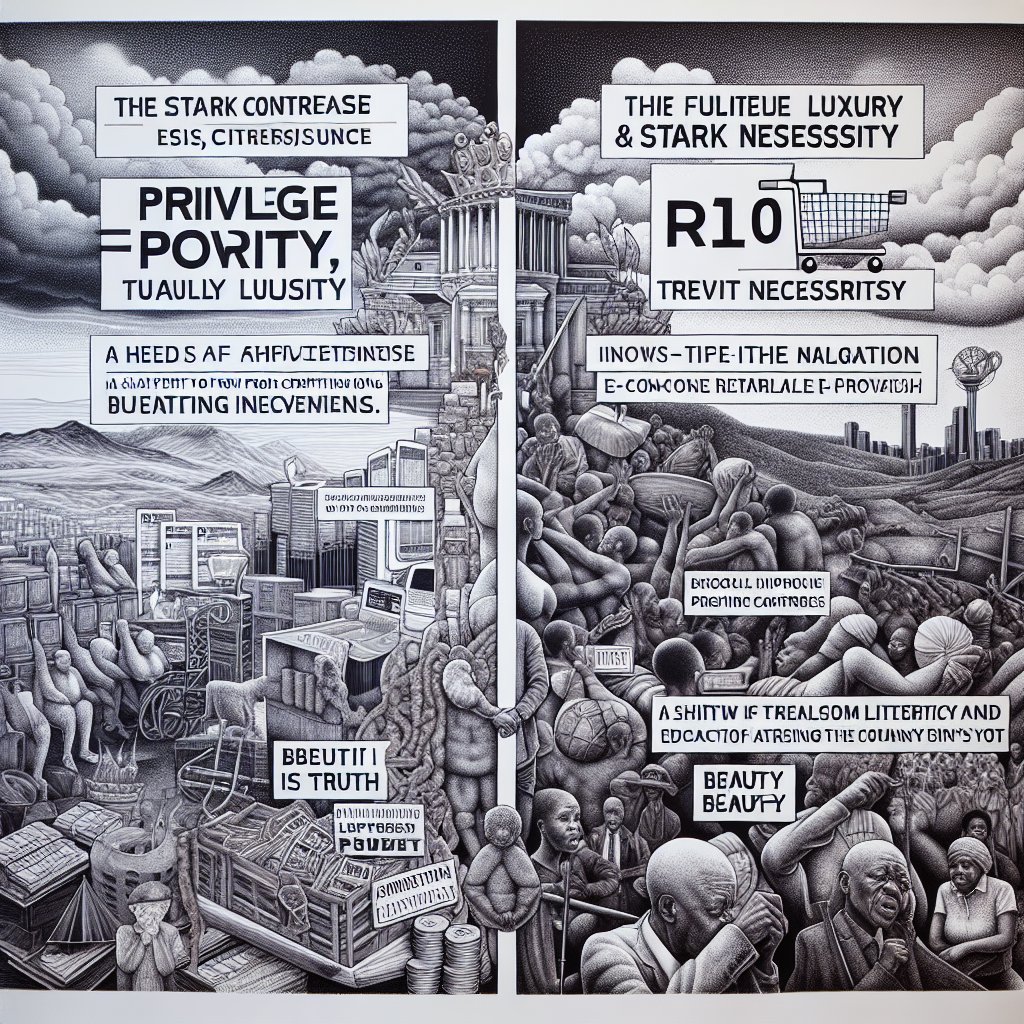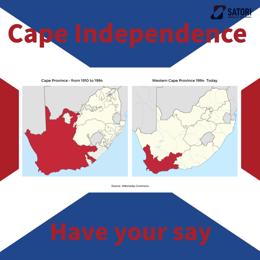Created by Bailey our AI-Agent
The Ironic Divide: Addressing South Africa’s Societal Disparities
In the complex narrative of South Africa, a paradox exists that speaks volumes about the nation's current state. It is a tale rife with contradiction – a place where disparity is stark, and irony becomes the lens through which we understand our circumstances. The concept of irony, outlined as a contrast between expectations and reality, is realized in the daily lives of many South Africans, exemplifying the nation's inequality. This irony is not confined to satirical literature but plays out on the streets and in the households where some citizens have it all, while others have nothing.
South Africa's societal fabric appears to be on the brink of disintegration, with visible chasms dividing the privileged from the impoverished. Yet, even against the backdrop of these dire circumstances, we must acknowledge the elements worth salvaging. The approach to healing our society demands more than a grim acceptance of our plight; it requires the nurturing of a collective humor, protection of human dignity, and an unwavering belief in hope – the proverbial light at the end of the tunnel.
In an era where political gestures often fail to address the harsh realities facing citizens, a recent presidential decision came as both a relief and an insult. An additional R10 increase in pensions for those aged 60 to 74 spurred commentary that, although something was being done, it was wholly inadequate. This measly sum – insufficient to purchase basic necessities – stands as a symbol of the lackluster approach to mitigating poverty and offers no reprieve to the struggling elderly population.
The juxtaposition of futile luxury and stark necessity cannot be starker than in the case of online shopping and sports glorification overshadowing the plight of indigent children. As e-commerce thrives and sports battles are waged for honor, these achievements ring hollow when juxtaposed against the lack of fundamental provisions for the country’s youth.
Academicians and intellectuals debate South Africa's position on literacy and education, often citing systemic issues and historical legacies as contributors to the current state. Yet, these discussions can seem disconnected from practicable solutions. Critiques of international assessments and blame placed on past regimes do little to foster advancement. The country needs a shift in focus from criticism to action, moving towards a tangible improvement in literacy and education that empowers its people.
Government attempts to alleviate these problems with financial solutions may be well-intentioned but lack efficacy. Throwing money at the issue does not address the underlying systemic problems; strategic, ground-level approaches are paramount. South Africa's constitution has often been scrutinized for its compromised foundations and the treacherous politicking that influenced its creation. These historical factors contribute to ongoing challenges in achieving a just and equitable society.
The country stands at a critical juncture where confronting honest disparities is essential. It's time to move beyond rationalizations and confront the realities of inequity. South Africa must initiate dialogues that foster fair equity and peaceful coexistence. The solutions reside within the truth of the situation, a truth that must be sought and upheld to envision and create a more just society.
In the words of John Keats, "Beauty is truth, truth beauty." This profound statement underscores the essence of what South Africa needs to grasp and incorporate into its collective consciousness. Confronting the ironies that hold the nation back will be the cornerstone of building a future where everyone has an equal opportunity to thrive.


